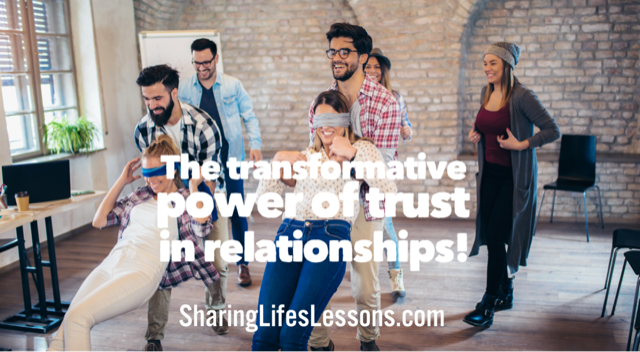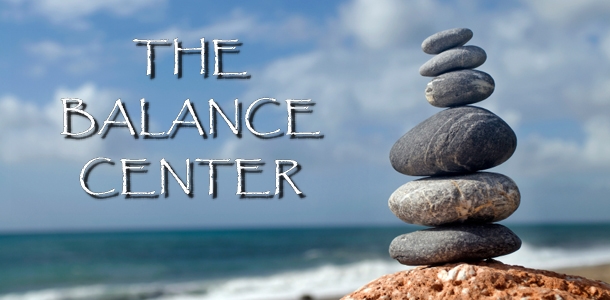The transformative power of trust in relationships!
- 23
- August
- 2023

Who do you trust? That was the name of a game show years ago. Today the question is definitely important. Do you trust your government, your doctors and lawyers, your neighbors, and your family? We hear conflicting information from the news media. Information can also be taken down when the powers that be decide it may be ‘dangerous’ for the population. It’s then labeled ‘misinformation’ or ‘disinformation’ and kept from the public. Does that make people trust more – or do they trust less?
Sometimes people’s opposing beliefs can result in conflict and even broken relationships. How wonderful would it be to have discussions where people who don’t agree, could start to know each other, accept each other, and maybe even learn from each other? And what would it be like for them to be able to ‘agreeably disagree’? Relationships could be much better between countries, political parties and even within families. As people trust and are transformed, relationships are also transformed and deepened.
Frank Sonnenberg understands the importance of trust when he said, “Trust is like blood pressure. It’s silent, vital to good health, and if abused it can be deadly.” We’ll offer an acronym for TRUST to help remember some key principles to develop trust to transform relationships and your life.
T stands for Truth. Of course, if you don’t have truth, there’s nothing solid to build on. Everything is a sham. Without truth, you don’t know what’s real or not real. No wonder people are confused with the many conflicting messages that people have received, especially from different news outlets,
When people are told the same thing repeatedly by several sources, they believe it. Then they develop what’s called ‘confirmation bias’. They reject differing ideas, even if the facts are true because it makes them anxious when those ideas don’t confirm their beliefs. Other people, get ‘cognitive dissonance’ which is holding two, or more, conflicting beliefs at the same time. This is stressful because they just want to know the truth.
R stands for Reliability. Whether the people in your life are newscasters, heads of government or healthcare, or your neighbors, friends, and family, you want them to be reliable. You want to know that, by their words and actions, they want the best for you and they’d “have your back.” Reliability is knowing that they’ll be consistently there in good and bad times. Reliability contributes to feelings of safety and trust.
U stands for Understanding. This means to understand that people are different and come to a relationship with different past learning. There may be certain “triggers” that cause a reaction from them that is least expected. If you’re surprised by a reaction from someone about something you said or did, take a moment to breathe those deep, calming yoga breaths. This will give you time to recognize the other person might have been triggered. We think one of the most helpful things is to take time to clarify by saying, ‘Help me understand’. Then let them talk.
S stands for Solution-focused. It’s a way of approaching problems that builds trust. When people focus on the solution, they can assess what has happened and look for how it can be better for all involved. They avoid being a victim and they avoid playing the ‘blame game’. This keeps people from trying to prove who is mostly at fault. It saves time and energy because it focuses on making a plan to start, repair, rebuild or do whatever’s needed to move toward the solution for a better outcome.
T stands for transparency and thoughtfulness. These principles involve being aware of how your words, and your actions, affect other people. Take time to really hear what people are saying and notice how they react. It’s easy to spend the time thinking about how they’re feeling about you or how you’ll respond. But when you take your attention away from you and put it on them, they’ll sense your caring, and it will foster trust. No ‘gaslighting’ to twist the message. Your transparency requires honesty and thoughtfulness and involves how and when you connect. The words and nonverbals you use can develop trust.
What about you? To develop transformation in relationships, also means to learn to trust yourself. We encourage you to use the principles we mentioned about trust to not only build trusting relationships with others but to have even more trust in yourself. As you do so, you’ll likely feel the transformation to deeper trust with relationships in your life. As Stephen Covey says, “Trust is the glue of life. It’s the most essential ingredients in effective communication. It’s the foundation on principle that holds all relationships.”
Chanhassen MN residents, Doug and Lynn Nodland are success coaches and owners of The Balance Center in Excelsior. Contact them at WeCare@TheBalanceCenter.com
© Doug and Lynn Nodland 2023 Articles and videos may be shared in their entirety with attribution.
Search:
Categories
Archives
- April 2024
- March 2024
- February 2024
- January 2024
- December 2023
- November 2023
- October 2023
- September 2023
- August 2023
- July 2023
- June 2023
- May 2023
- April 2023
- March 2023
- May 2021
- April 2021
- March 2021
- February 2021
- January 2021
- December 2020
- November 2020
- October 2020
- September 2020
- August 2020
- July 2020
- June 2020
- May 2020
- April 2020
- March 2020
- February 2020
- January 2020
- December 2019
- November 2019
Contact Us
Doug Nodland J.D.
684 Excelsior Boulevard
Suite 120
Excelsior, MN 55331
952-452-2664
WeCare@TheBalanceCenter.com

